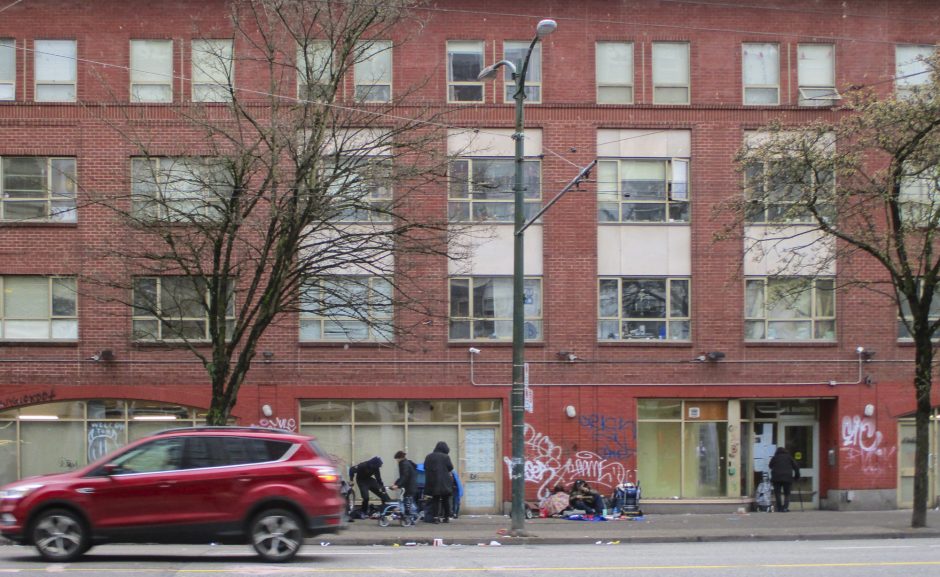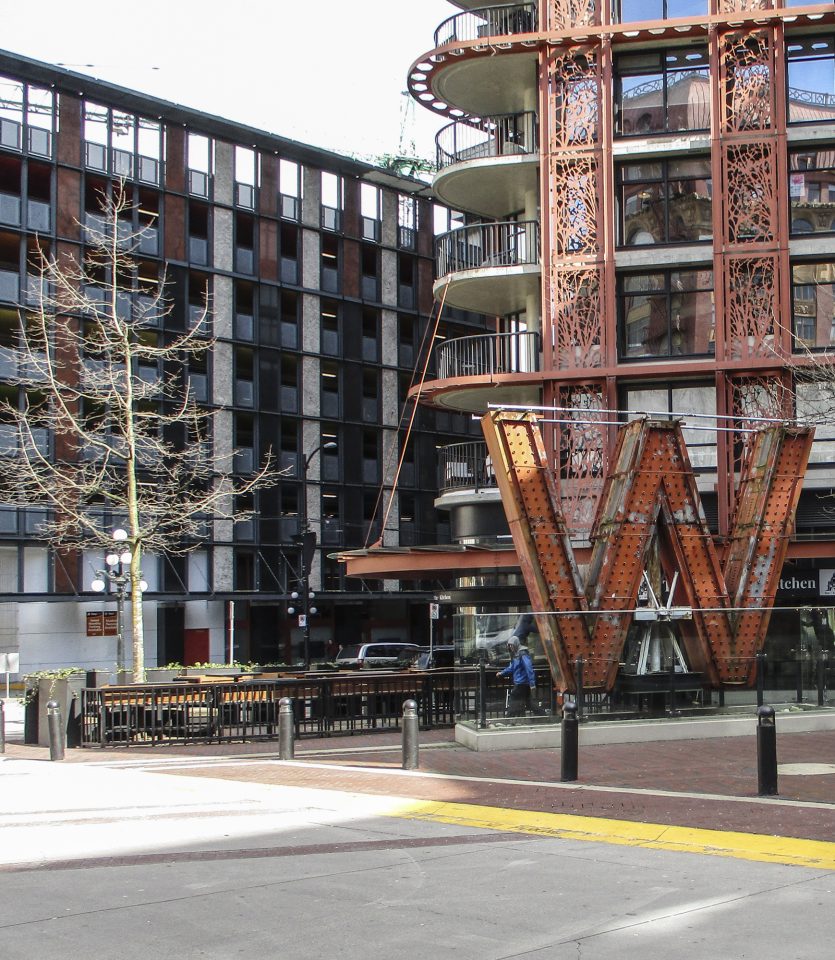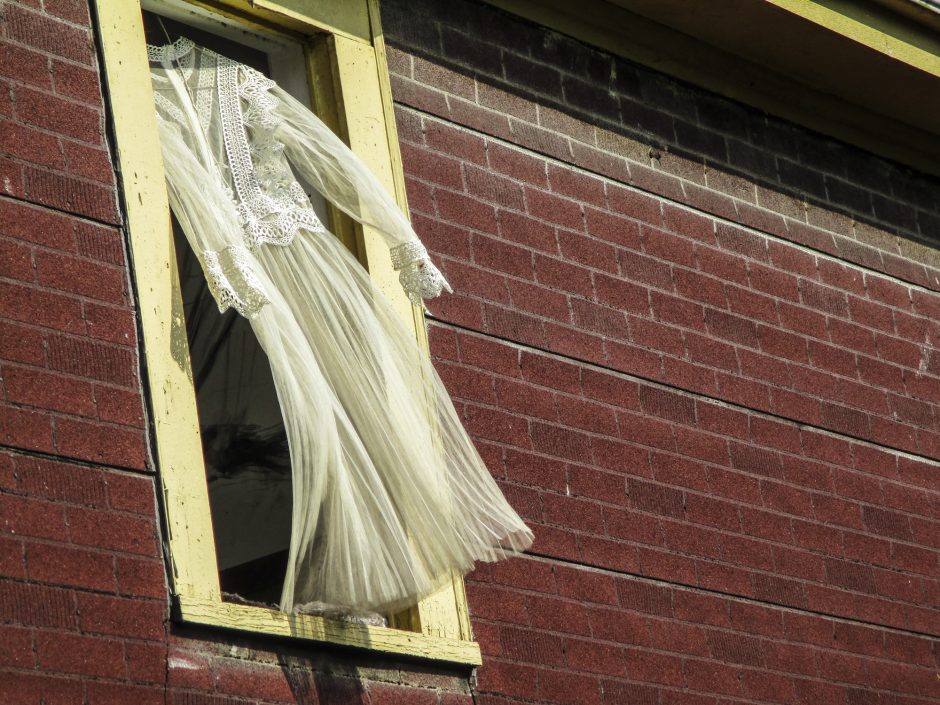How the ‘Shifting Focus’ photovoice project is highlighting paths forward with formerly incarcerated men.
July 18, 2021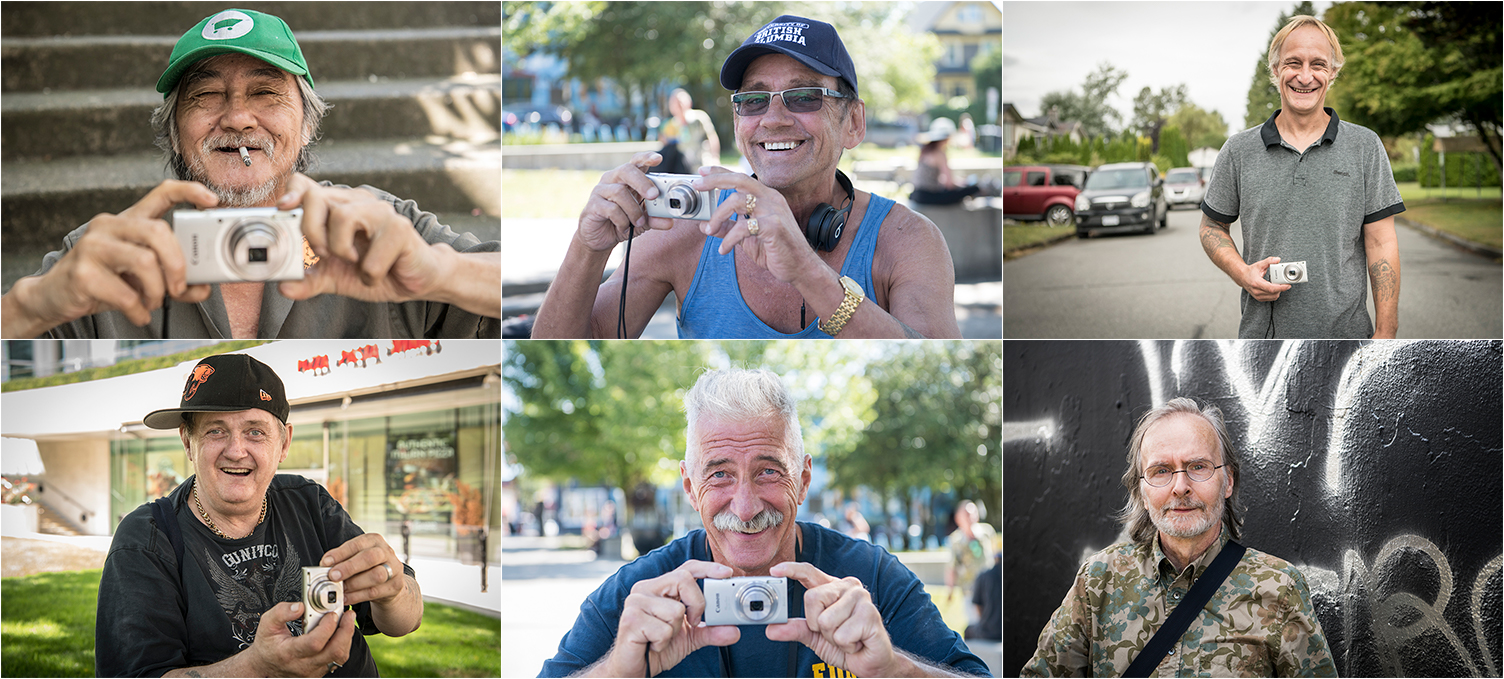
‘Shifting Focus’ participants (clockwise from top left): Rickie, Richard, Jason, Patrick, Giuseppe, Robert.
How do you move forward after being released from prison?
That’s the question at the heart of a community-based research project that had been meeting at the UBC Learning Exchange for four years before COVID-19 restrictions and has recently released a powerful photography project.
Called Trauma at the Root, the participatory project is a collaboration between UBC’s Collaborating Centre for Prison Health and Education (CCPHE) and John Howard Society of Canada that is exploring new ways to foster resilience among men who have been incarcerated.
“Research shows that incarcerated men often have some form of trauma in their backgrounds,” said Dr. Chris Richardson, principal investigator on the project. “Incarceration itself is also emerging as a recognized form of trauma, with impacts on physical and mental health–especially with respect to how men learn to manage stress. Add in the stigma that can be associated with incarceration and a feeling that, as a man, one can’t ask for help—these are difficult things for anyone to overcome.”
The Trauma at the Root project is exploring the idea that increasing awareness of trauma and its effects can help men develop skills to manage traumatic stress and promote improved self-care. The project is fostering resilience in men by engaging them in strengths-based activities that connect them with peers and allow them to discover their own interests and abilities.
One such activity was a participatory photography project, also known as photovoice. Photovoice is a research approach that invites participants to share their perspectives through photography. It can serve to amplify voices not often centred; voices that, in this case, challenge the stigma associated with incarceration and substance use.
Following an introductory workshop on trauma and resilience, formerly incarcerated men were invited to join the photovoice project. Titled Shifting Focus: Snapshots of Resilience, the project became the basis for a glossy art book, an online photo gallery (samples below), and a video capturing participant reflections.
‘Mutual respect’ matters
Shifting Focus began in February 2020 with weekly meetings at the UBC Learning Exchange where participants learned how to use digital cameras and the basics of photography. At each session, Jeff Topham, a professional photographer, would discuss participants’ work and assign new prompts for the following week. The prompts included words like “humour,” “self-portrait,” “frustration,” or “resilience” and the men would capture photographs that represented the prompts. The activities continued remotely after a brief hiatus due to COVID-19.
Developing a sense of mutual respect and collaboration was critical to the project, as project manager Kate Roth explained, “We didn’t want the men to feel like we were just researchers coming to extract information and then leave. The guys really bonded with Jeff. He would go over each of their photos and give them professional tips, and talk through the stories behind the photos. And he shared some of his own work and stories as well.”
Through their photographs, the men were able to share their own stories about incarceration and returning to life in the community. Although the men faced numerous challenges in their lives, Kate described the emphasis of the project as “shifting the focus from trauma to resilience and reframing how we interpret men’s lives.”
“Everyone bought in and worked hard to create these collections that we can share with others,” Kate added, including the men’s peers and the general public who otherwise might not engage with men who have been incarcerated.
If popularity of the art book is any indication, the project has exceeded expectations.
“People are asking the guys to sign copies of the book at DUDES Club,” said Chris, who is a Research Associate at the UBC School of Population and Public Health and CHEOS Scientist at St. Paul’s Hospital. “It has been hard to keep up with the demand for more copies.”
DUDES Club is a men’s wellness program in the Downtown Eastside that also has a close and active relationship with the UBC Learning Exchange. The group, for example, sometimes meets in the space or takes part in knowledge exchange events. Richard Teague, project assistant with Trauma at the Root, is also a facilitator for DUDES Club and helped the project connect with men in the Downtown Eastside.
Learning Exchange felt welcoming
“Having the UBC Learning Exchange space is really important,” said Kate. “It’s a place where the guys feel they are among peers, welcomed and respected. This is a big deal for a project that’s about reducing stigma and fully appreciating the knowledge and expertise that the guys have to share.”
Before COVID-19 restrictions, UBC research teams and Downtown Eastside groups could use UBC Learning Exchange spaces for meetings and other activities at no cost. Offering welcoming space in the Downtown Eastside is an important aspect of the UBC Learning Exchange’s mandate to build capacity and connections between UBC and the Downtown Eastside community. (See sidebar.)
Shifting Focus is part of a larger five-year research project called Trauma at the Root: Exploring Paths to Healing with Formerly Incarcerated Men, the next stage of which will be working with participants to design a workshop and resource about trauma and resilience to be shared with their peers.
You can also read the Trauma at the Root project report in the Downtown Eastside Research Access Portal, and view a sampling of the photos below.
Booking facilities at the UBC Learning Exchange
Because meeting room and facility space is scarce in Vancouver’s Downtown Eastside, the UBC Learning Exchange offers community organizations and research groups no-cost access to the Learning Exchange building to support new connections, new understandings and new experiences.
According to Eliza Ong Javier, operations and engagement coordinator at the UBC Learning Exchange, this can be as straight-forward as offering a meeting room, or as complicated as advising on how to host an event with catering and other logistical challenges.
“There’s no one-size-fits-all solution,” said Eliza. “If a group is interested in using our space, I like to meet with them to best understand how we can support their goals.”
This can take the form of speaker events in the Learning Exchange’s Drop-In space, knowledge exchange events between university researchers and community residents, computer sessions, healing circles, or, as mentioned, regular meetings.
While currently closed to external groups due to COVID-19 restrictions, contact Eliza Ong Javier (eliza.ongjavier@ubc.ca) for more information when restrictions are lifted.
Trauma at the Root is a partnership between the CCPHE and the John Howard Society of Canada. It has received funding from the Vancouver Foundation and Health Canada-Substance Use and Addictions Program (SUAP).
Photo Gallery
In pre-COVID-19 times, the UBC Learning Exchange would have hosted an in-person exhibit to celebrate the work of these photographers, but can’t do so until it is safe to gather again in larger groups. In the meantime, we offer this selection of photographs, one from each participant along with a link to the rest of their work.
View the full Shifting Focus gallery on the CCPHE website.
“Ex-cons can be the most creative, thoughtful thinkers. They just made mistakes in their lives. A photovoice project can help change people’s minds about us.”
-Richard
View more of Richard’s photos…
“I don’t know if I’m reaching people or not, but it’s making me feel better doing it.”
– Rickie
“When I ask, ‘May I take a picture of you?’ just that interaction with people makes you feel like a human being again.”
-Giuseppe
View more of Giuseppe’s photos…
“The project helped me realize there is more than one way to tell a story.”
-Patrick
View more of Patrick’s photos…
“Photos help you actually focus on some of the things you have to change around you. You tend to look for things that are positive in the city, in a world that’s pretty well negative.”
-Robert
To learn more about the Shifting Focus and Trauma at the Root projects, contact Kate Roth and Chris Richardson at the CCPHE (ccphe@spph.ubc.ca).
To learn more about community-based research related to the Downtown Eastside, contact Heather Holroyd at the UBC Learning Exchange (heather.holroyd@ubc.ca).
To learn more about booking facilities at the UBC Learning Exchange, contact Eliza Javier (eliza.javier@ubc.ca).
Related stories

Celebrating 10 Years of Pop-Up Tech Cafés
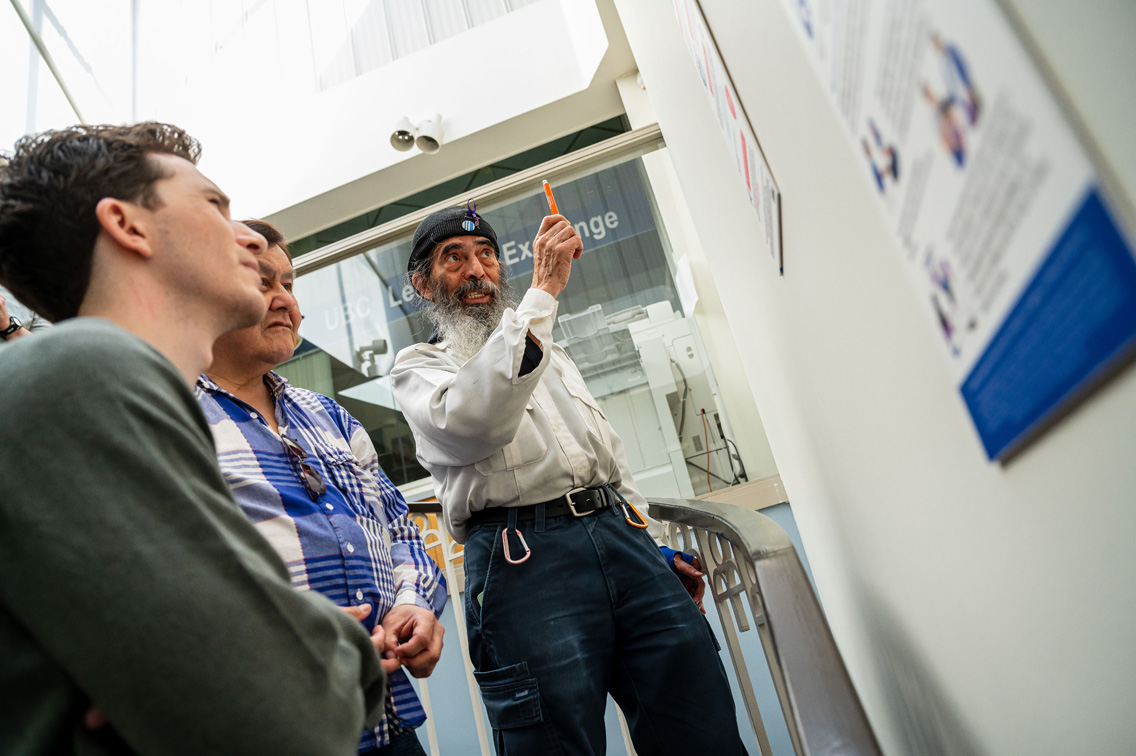
New Infographics Summarizing DTES Research Available
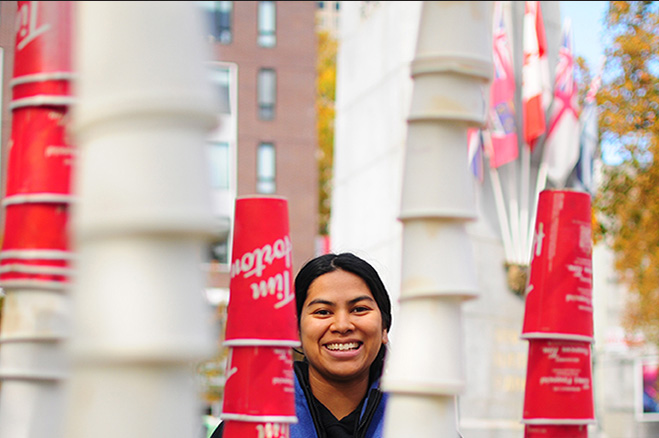
UBC Students Turn Cups into Art as Binners’ Turn Cups into change

